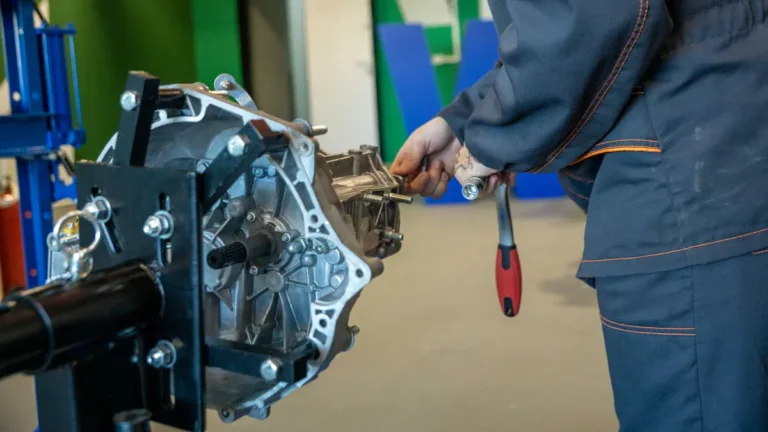Capital One does not provide loans for campers or recreational vehicles because its auto financing strictly covers passenger cars, trucks, and SUVs, excluding specialty vehicles like RVs and camper vans. This approach reflects the unique challenges and risks involved in financing campers, such as higher values, longer loan terms, and specific underwriting requirements that differ from conventional auto loans. As a result, those interested in camper financing should seek lenders who specialize in RV loans, such as credit unions, dealer financing, or banks offering customized loan products. These alternatives often provide flexible terms, competitive rates, and loan structures designed to fit the seasonal income patterns and larger costs associated with recreational vehicles, helping borrowers find solutions matched to their budgets while minimizing risk exposure. Grasping these distinctions is essential before seeking financing, as it influences loan eligibility, interest rates, collateral rules, and general affordability. This sets the stage for examining the specifics of Capital One’s policies and comparing specialized options elsewhere.
Overview of Capital One’s Auto Loan Services
While Capital One is a well-known name in the auto finance world, people sometimes question whether they can count on the company for all kinds of vehicle loans, including campers or RVs.
Capital One’s auto loan services focus strictly on cars, trucks, SUVs, and similar passenger vehicles, explicitly excluding recreational vehicles like campers or motor homes.
The customer experience centers on seamless, digital tools such as the Auto Navigator and Capital One mobile app, enabling pre-qualification, refinancing, and loan servicing all online.
This digital-first approach offers transparency and control, allowing users to manage their loans and make payments easily from their devices.
However, despite these conveniences, Capital One’s financing options do not extend to specialized loans for campers, making other lenders necessary for those purchases.
Capital One’s Policy on Camper and RV Financing
Capital One’s policy clearly excludes financing for recreational vehicles such as campers, motor homes, and RVs. This exclusion is part of their internal compliance and is consistently reflected in their public messaging, ensuring customers understand their auto loans are intended solely for cars and trucks.
Capital One’s auto financing services focus on traditional vehicles and do not include specialized loans for campers, which require different underwriting criteria due to their value and use. For borrowers seeking camper or RV financing, Capital One directs them to other lenders that specialize in these products.
This clear policy alignment supports compliance integrity while minimizing confusion, helping users make informed decisions about where to pursue financing for recreational vehicles.
Key Reasons Capital One Does Not Offer Camper Loans
Because financing campers involves risks and complexities that differ substantially from standard auto loans, many lenders like Capital One choose not to offer these products. One key reason is regulatory constraints that require specialized compliance for recreational vehicle financing, complicating Capital One’s broader auto loan operations.
Additionally, Capital One focuses on market specialization; their proficiency centers on typical cars and trucks, not niche markets like campers, which often demand custom underwriting criteria and risk assessments. Campers’ higher values, variable depreciation, and unique usage patterns increase financing complexity.
This divergence in product focus and regulatory demands leads Capital One to exclude camper loans, directing customers to lenders specializing in these vehicles who can better handle the subtleties, offer dedicated loan terms, and manage the inherent risks effectively. This strategy maintains Capital One’s streamlined lending approach without sacrificing compliance or service quality.
Alternatives to Capital One for Camper and RV Financing
Though Capital One excludes camper and RV loans from its products, many other lenders provide customized financing options that make owning an RV or camper achievable and less stressful.
These alternatives combine flexibility, competitive rates, and borrower-friendly features to fit diverse needs.
- Specialized Lenders and Credit Unions often offer bespoke RV loan programs that include Manufacturer Incentives to reduce costs and Peer Lending platforms that connect borrowers with investors directly, sometimes yielding better terms.
- Loan Features typically include secured loans with the camper as collateral, options for new or used vehicles, and benefits like quick approval, payment protection, and GAP insurance, which helps cover losses from theft or damage.
- Application Requirements usually involve basic documentation such as photo ID, income verification, and vehicle details, enabling smoother processing and equipping buyers to negotiate effectively with seller confidence.
Features of Camper Loans From Specialized Lenders
What makes camper loans from specialized lenders stand out are their customized features designed to meet the unique needs of RV and camper buyers. These lenders often offer flexible loan terms, competitive interest rates secured against the vehicle, and options such as dealer incentives to reduce purchase costs. Accessory financing is another key feature, allowing borrowers to bundle equipment or upgrades within their loan, simplifying budgeting.
The loan process typically includes quick pre-approval, documentation requirements, and sometimes payment protection or GAP insurance. These benefits help buyers manage the higher value and maintenance costs of campers efficiently.
| Feature | Benefit | Buyer Impact |
|---|---|---|
| Dealer Incentives | Lower total purchase price | Cost savings |
| Accessory Financing | Includes upgrades & equipment | Simplified payment planning |
| Flexible Terms | Customized repayment schedules | Better budget management |
How Secured Camper Loans Work and Their Benefits
Secured camper loans work through using the camper itself as collateral, which means the lender can repossess the vehicle when payments are missed. This collateral backing generally results in lower interest rates compared to unsecured loans, making monthly payments more affordable for borrowers.
To qualify, lenders typically look at credit score, income, and the camper’s value, setting criteria that help balance risk while giving borrowers access to larger loan amounts and flexible terms.
Collateral Role Explained
Should a camper be used as collateral for a loan, it means the vehicle itself guarantees the loan repayment.
This arrangement offers significant benefits through lowering interest rates and extending loan terms, as the lender has security in case of non-payment.
However, it also involves legal implications: the borrower risks repossession when payments are missed, raising the stakes.
Valuation disputes can arise when the camper’s market value fluctuates, complicating payoff calculations and refinancing options.
Key aspects include:
- Collateral secures the loan, allowing lenders to offer better rates since the camper acts as surety.
- Repossession risk applies, meaning missed payments can lead to losing the camper.
- Valuation disagreements can affect loan balances, especially when the vehicle depreciates faster than anticipated.
Understanding these elements helps borrowers manage camper loans with confidence and avoid surprises.
Interest Rate Benefits
Interest rates on camper loans often reflect the security that lenders have as the vehicle itself serves as collateral.
Because the camper or RV backs the loan, lenders face less risk, so they typically offer lower interest rates compared to unsecured personal loans. These lower rates can lead to significant compound savings over the life of the loan, meaning borrowers pay less in total interest and might see their monthly payments drop, leaving more room in the budget for travel or other expenses.
Fixed-rate camper loans also provide some inflation protection, since the payment stays the same even when prices rise in the future.
Borrowers with strong credit often qualify for the best rates, but even average credit could secure reasonable terms. Understanding these details can help you choose a loan that fits both your dreams and your wallet.
Loan Qualification Criteria
What does it take to qualify for a camper loan? Since Capital One does not offer camper loans, borrowers must turn to lenders specializing in RV or camper financing. Knowing how secured camper loans operate and their benefits is key.
1. Application timing and documentation are essential—lenders require proof of income, photo ID, and details about the camper.
Applying at the right season can help when you have seasonal income, as lenders assess the stability of earnings.
2. Collateral use is standard; the camper acts as security.
This lowers interest rates but means the vehicle can be repossessed should payments be missed.
3. Loan qualification involves credit score checks, debt-to-income ratio, and evaluation of the camper’s value,
often resulting in stricter requirements than typical auto loans.
These factors together promote a smoother financing process with better rates and terms.
Typical Loan Terms and Interest Rates for Camper Financing
Typical loan terms for camper financing generally range from five to twenty years, allowing borrowers to choose a duration that fits their budget and repayment capacity.
Interest rates vary widely but tend to be lower for secured loans, where the camper acts as collateral, often starting near 7 percent, while unsecured loans usually carry higher rates.
Comprehending these terms helps borrowers plan for manageable monthly payments and long-term affordability as they consider financing options beyond typical auto loans.
Loan Duration Options
- Shorter terms of 3 to 5 years for buyers who want to minimize interest costs and own the camper faster but with higher monthly payments.
- Medium terms of 6 to 10 years, balancing affordable monthly payments with reasonable interest expenses.
- Longer terms extending up to 15 or even 20 years, popular for larger or more expensive campers, reducing monthly payments but increasing total interest paid.
These flexible duration options enable borrowers to tailor loans to their cash flow, camper usage patterns, and financial goals.
They allow more control over budgeting and seasonal expenses.
Typical Interest Ranges
Loan durations influence monthly payments and total interest, setting the stage for perspective into how interest rates behave in camper loans.
Typical interest ranges for camper financing depend markedly on seasonal variation and regional variation. Interest rates often rise during peak camping seasons as demand increases.
Regionally, rates vary due to economic conditions, state regulations, and lender competition. Secured camper loans usually offer lower interest rates, often starting around 5% to 10%, reflecting the collateralized nature of the loan.
However, unsecured loans can see rates as high as 20% or more. Borrowers in regions with fewer lenders or higher household costs might encounter slightly higher rates. Grasping these mechanics helps prospective buyers anticipate cost fluctuations and choose the best time and place to secure camper financing suitable to their financial situation.
Qualification Requirements for Camper and RV Loans
Any time someone applies for a camper or RV loan, lenders typically look closely at several financial and personal factors to decide whether they qualify.
These include verification of residency, often requiring a valid physical address, and examining creditworthiness and income stability. Additionally, some lenders offer co-signer options to help applicants with weaker credit profiles secure loans.
Key qualification requirements include:
- Proof of stable income and employment to verify loan repayment ability.
- Residency verification, usually a U.S. address, to confirm borrower eligibility.
- Credit score assessment, where higher scores improve approval chances and lower interest rates.
These criteria help lenders assess the risk posed by financing recreational vehicles, which are usually used as collateral.
Borrowers should prepare documentation such as photo ID, income proof, and vehicle details to streamline approval.
Co-signers can bolster qualification if credit challenges exist, providing reassurance to lenders.
Additional Costs and Considerations When Financing Campers
If financing a camper, it’s crucial to factor in additional costs beyond the loan itself, such as insurance, regular maintenance, and fuel expenses.
These ongoing costs can add up and should be factored into your total budget to avoid surprises down the road.
Grasping these elements helps paint a clearer view of the total ownership cost, which ties directly to how comfortable and sustainable the financing will be over time.
Insurance and Maintenance
Considering insurance and maintenance is essential for anyone financing a camper because these ongoing costs add substantially to the total expense.
Owners must plan for several key areas:
- Liability coverage is required through most lenders and protects against damages or injuries caused by the camper.
- Winter maintenance is vital for campers used in colder climates, including winterizing plumbing and protecting the battery.
- Routine upkeep like tire checks, engine servicing, and cleaning helps prevent costly repairs and keeps the camper in good condition.
These expenses are not just about safety and compliance—they also help maintain the camper’s value and guarantee smooth, worry-free journeys.
Budgeting for insurance and regular maintenance means fewer surprises and more enjoyable trips on the road.
Total Ownership Costs
Owning a camper comes with ongoing costs that go beyond the loan payments.
Campground fees can add up quickly, especially when you travel often or stay in popular destinations.
These fees cover amenities like electricity, water, and Wi-Fi, making your trip comfortable but also increasing your monthly expenses.
Seasonal storage is another cost to factor in, especially when you live in an area with harsh winters or limited space.
Storing your camper safely keeps it in good shape but requires a monthly or yearly fee.
Insurance, maintenance, and fuel are also regular expenses that impact your budget.
Planning for these costs helps avoid surprises and keeps your camper trips enjoyable and stress-free.
Tips for Choosing the Right Lender for Camper Loans
- Loan terms and interest rates — competitive rates and flexible repayment options reduce financial strain.
- Specialized camper loan services — including GAP insurance and payment protection, which offer additional security.
- Pre-approval and application ease — lenders with quick, transparent approval processes allow confident negotiation while purchasing.
Additionally, thorough reviews and recommendations from local borrowers reveal a lender’s reliability and responsiveness.
Accessibility can enable personalized assistance and build trust, while lenders offering digital tools alongside physical branches combine convenience with human support, vital for a complex purchase like a camper. This comprehensive approach guarantees both financial and emotional comfort during the loan process.



